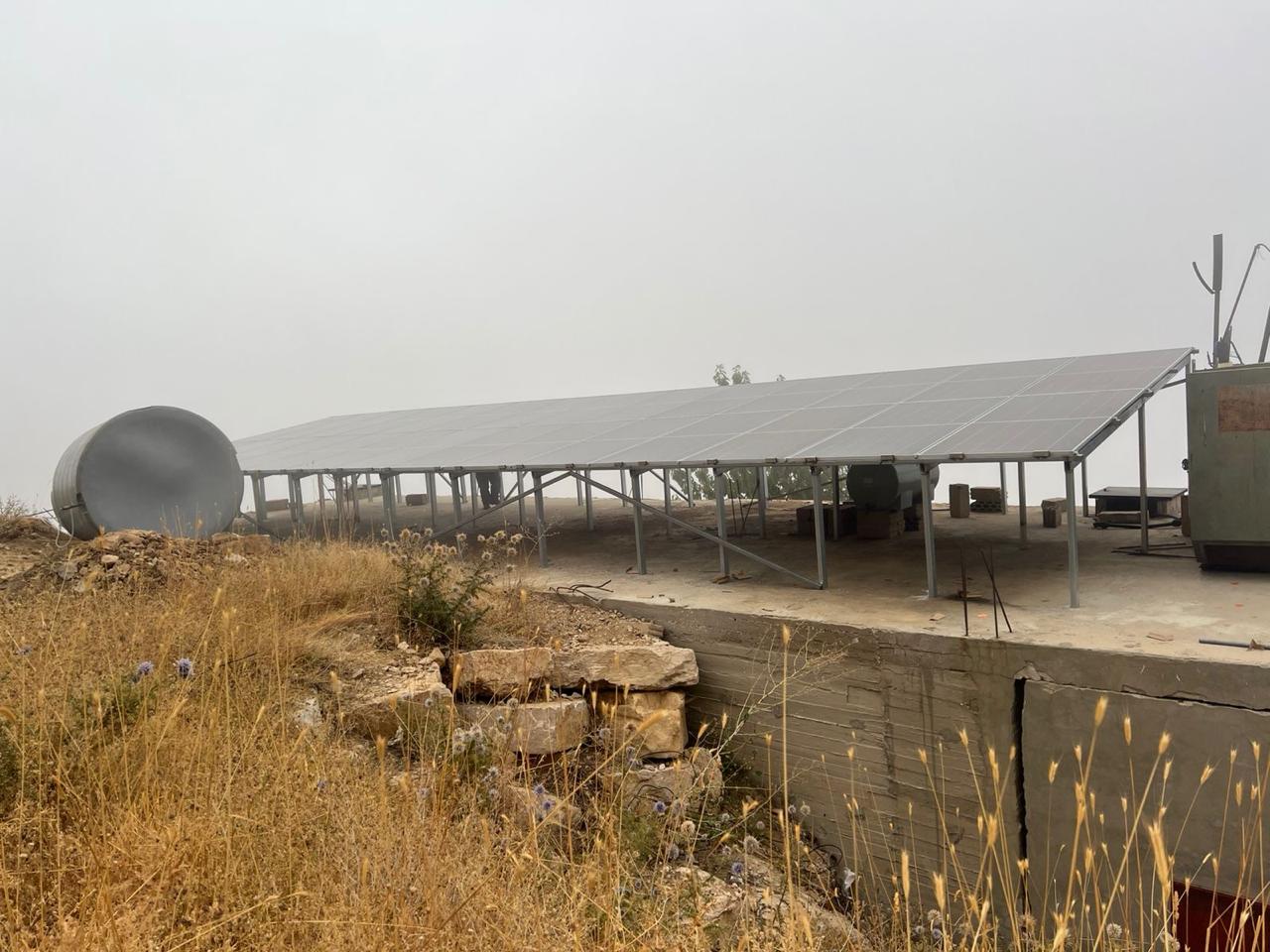Kabeela Community is regenerating a Mediterranean mountain landscape in Lebanon facing seasonal water stress and energy gaps. Phase 1 established solar pumping, land-wide drip irrigation, and a rainwater-harvesting pond (in progress) to secure water and energy baselines. The team also restored and cultivated existing grape terraces, harvesting the first batch of wine grapes through pruning, weeding, and irrigation. These actions have stabilized the land, reduced diesel dependence, and laid the foundation for full Water–Energy–Food–Ecosystem integration.
Kabeela Eco-Village is situated in the mountains of Lassa, northern Lebanon, at about 1,600 m elevation. The Mediterranean landscape faces pronounced dry summers, intense winter rainfall, and steep slopes that make water retention difficult. The area once hosted diverse orchards of grapes, apples, cherries, walnuts, and chestnuts, but many terraces were left untended as rural families migrated away. In recent years the site has also suffered illegal wood-cutting of ancient juniper and other native trees, unregulated grazing, and bird-hunting, accelerating erosion and biodiversity loss.
Kabeela was founded to reverse this trend and re-establish harmony between human activity and ecosystem integrity. Its first phase focuses on securing the water and energy foundations required for long-term regeneration, protecting remaining forest patches, and caring for the existing fruit trees while restoring the traditional vineyard terraces. The project demonstrates how an integrated Water–Energy–Food–Ecosystem approach can revitalize degraded mountain terrain and rebuild local stewardship.
Our community’s team is currently formed of two caretakers present continuously on the land, two consultants (agricultural, and earthworks), task-based local contracted workers (pruning, weeding, irrigation, metal structuring, etc.), and my father and I (funding, vision, delegation, etc.)
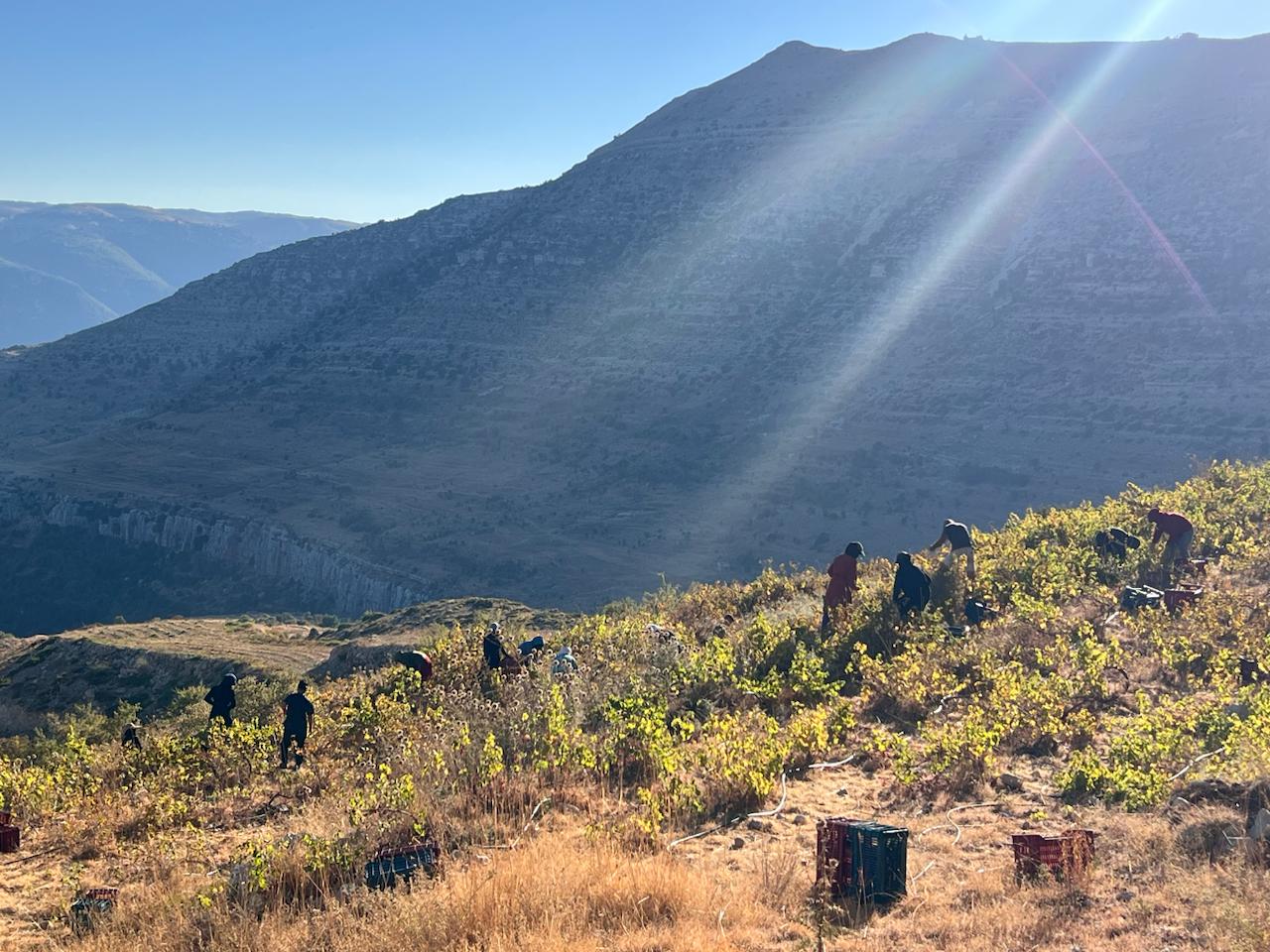
The main goal of Kabeela Eco-Village is to establish an integrated Water–Energy–Food–Ecosystem model suited for Mediterranean mountain landscapes. The project’s first phase focuses on securing water and energy autonomy through solar pumping, drip irrigation, and rainwater harvesting. In parallel, the team is reviving traditional orchards and vineyards while protecting local forests from illegal logging and hunting.
The medium-term goal is to restore ecological balance through agroforestry, biodiversity corridors, and soil regeneration on 40 hectares of terraced land.
Long-term, Kabeela seeks to serve as an educational demonstrator and replicable blueprint for self-sustaining rural communities, connecting ecological restoration with local livelihoods, training, and cultural revival.
Since the Spring of 2025, Kabeela has implemented foundational water and energy systems and reactivated agricultural production on the land. A solar-powered water pump (3hp) now supplies domestic and irrigation needs (around 2 L/s year round on demand). A drip irrigation network that covers the entirety of the land (400,000 sqm) of which 280,000 is arable, ensures efficient use of water. Excavation of a 4,800 sqm rainwater-harvesting pond has begun to capture seasonal runoff and recharge groundwater, with a volume of 26,794 m3.
The team has revived and cared for existing vineyards (12,275 vines) and fruit orchards (689 trees of apples, cherries, walnuts, chestnuts combined), leading to the first grape harvest (4.5 tonnes). In parallel, the community has organized workdays for orchard maintenance and established monitoring to prevent illegal wood-cutting, grazing and hunting, protecting native juniper and oak stands.
Economic Feasibility
Through only personal (family) contribution, we are kickstarting the project’s economic foundation. Up until now we have invested more than $40,000, apart from acquiring the land itself, that was funnelled mostly into upkeeping, restoring, and improving existing infrastructure.
We expect to invest an additional $86,000 next Spring and a consequent yearly operation cost of $37,000 targeting the orchards and vegetable productions to break even by year 3-4 with a food production of over 100 tonnes per year.
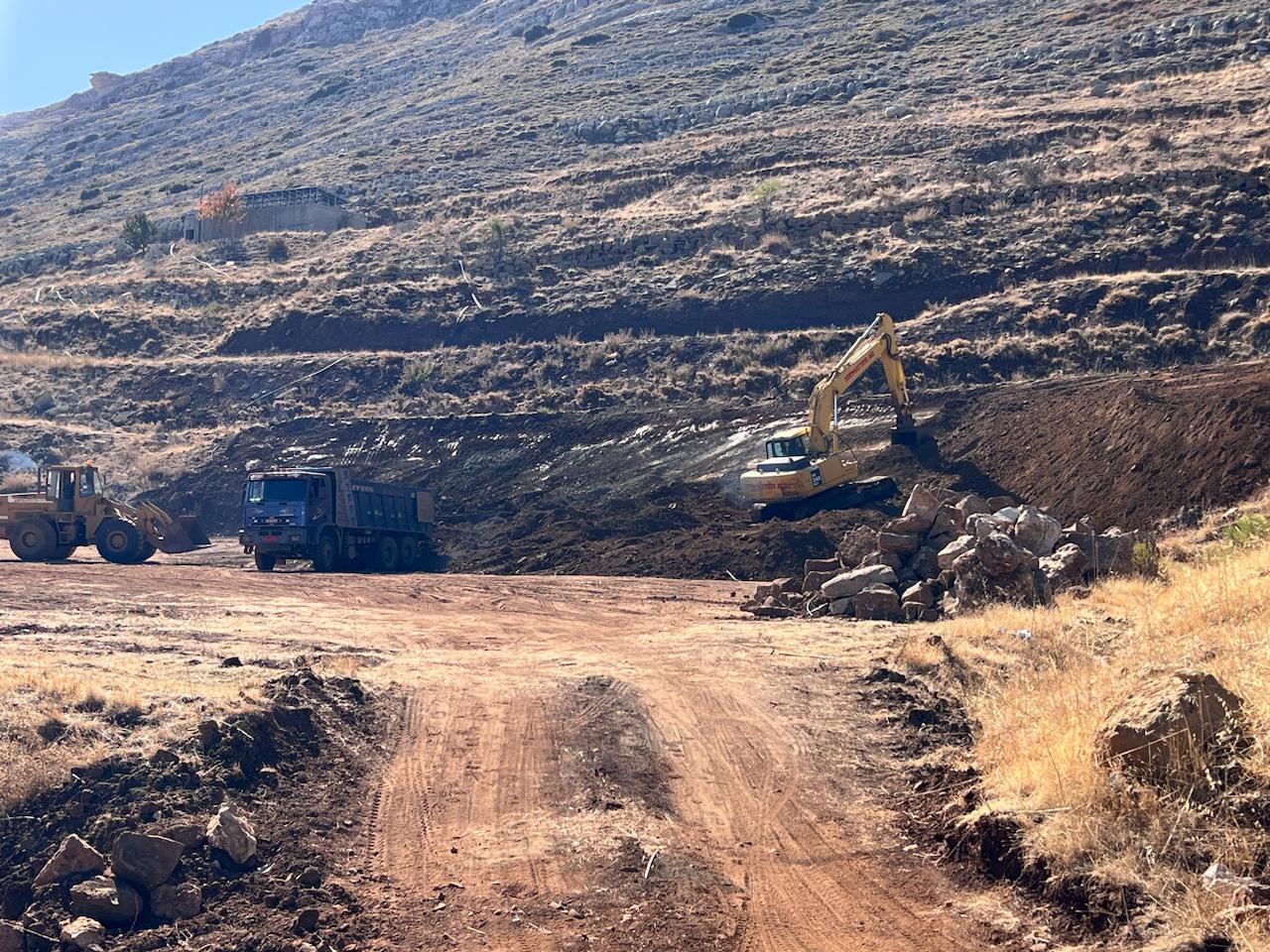
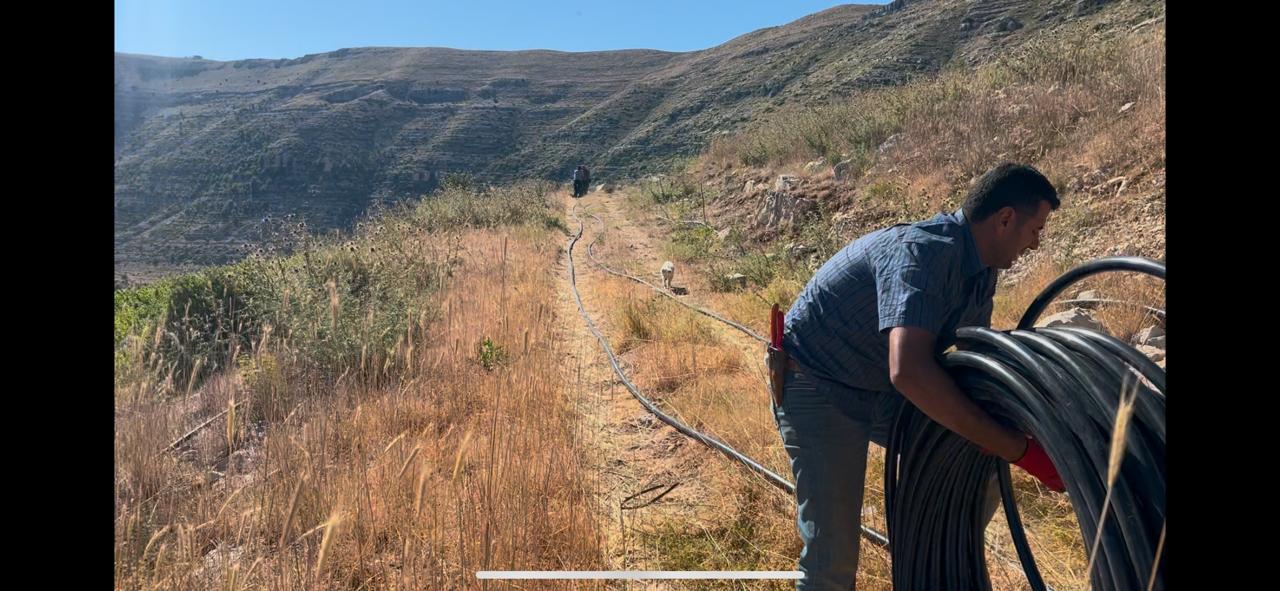
Kabeela’s first phase has resulted in stable water availability, powered entirely by 36x610W solar panels, producing approximately 144 kWh/day, enough to power all current infrastructure on-site, including the residential spaces, and solar-pumped irrigation system, and reducing dependence on diesel generators completely. The system is expandable to integrate battery storage and future microgrid connections, ensuring long-term energy self sufficiency and resilience.
- The drip irrigation system has improved soil moisture and reduced runoff.
- The first harvest of wine grapes marked the land’s return to productive cultivation after years of neglect.
- Fruit trees have shown improved vitality thanks to consistent irrigation and pruning.
- Illegal wood-cutting, unregulated grazing, and hunting have significantly decreased through regular presence and awareness.
- Community participation in land care has grown, laying the groundwork for the next phase of agroforestry and biodiversity enhancement.
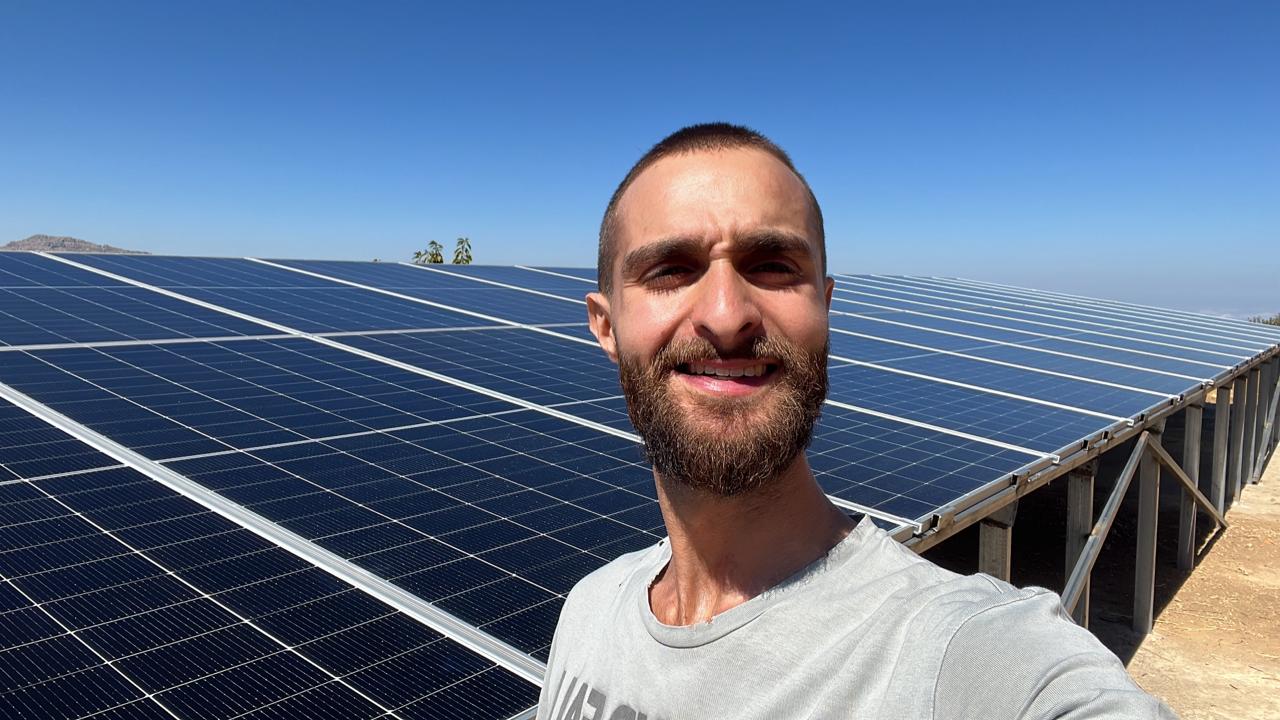

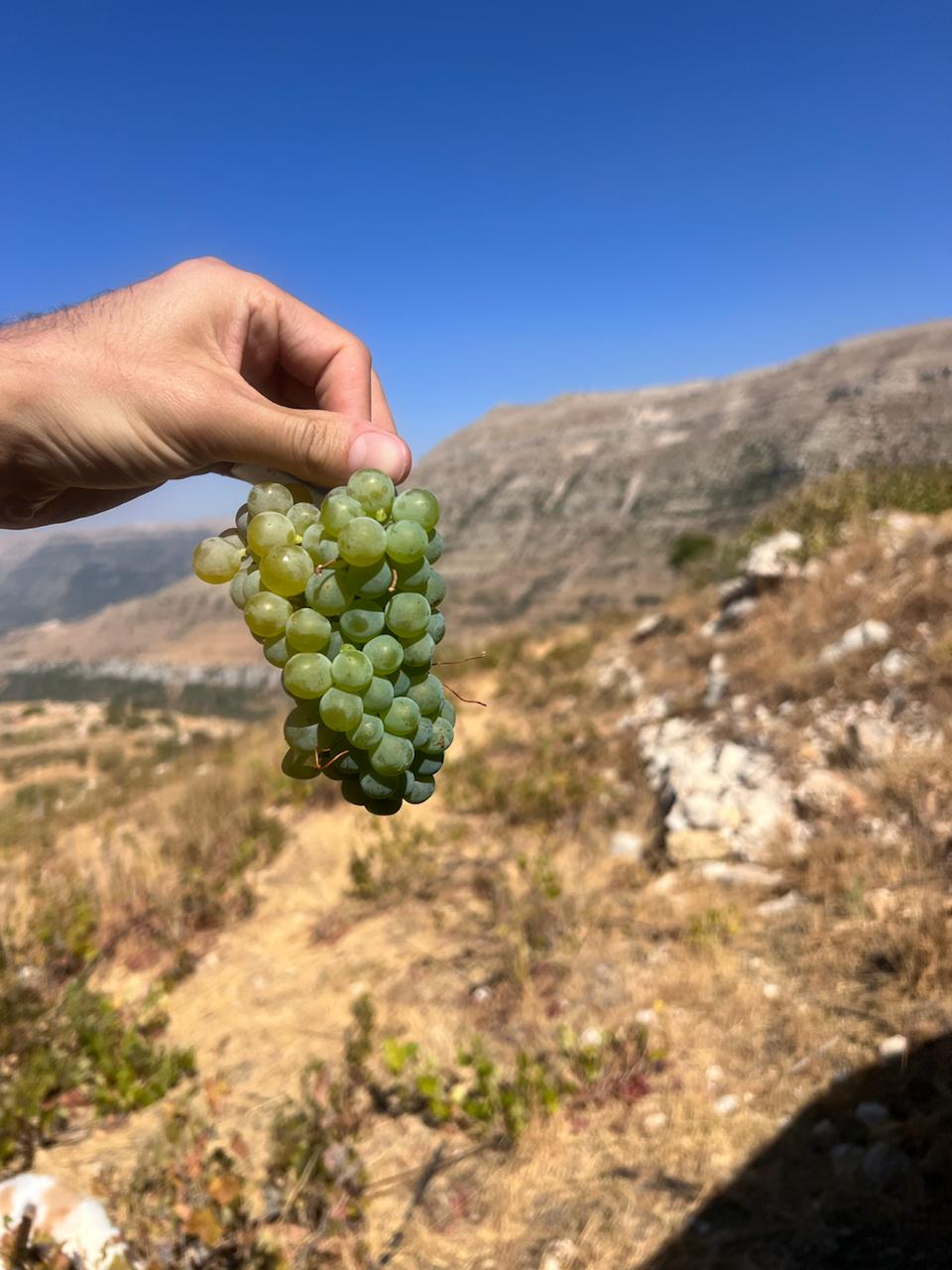
The Kabeela experience shows that starting the WEFE process with water and energy baselines ensures long-term success in semi-arid mountain contexts. Once those are secured, food and ecosystem regeneration can expand organically. Low-tech solutions such as solar pumping, drip irrigation, and ponds are easily maintained and replicable by local cooperatives.
Protecting existing ecosystems while reviving traditional crops strengthens both ecological resilience and cultural identity. The participatory approach—volunteer days, open learning, and shared responsibility—builds community ownership. The model is scalable across Mediterranean mountain regions, where heritage orchards and forests coexist with water scarcity.
